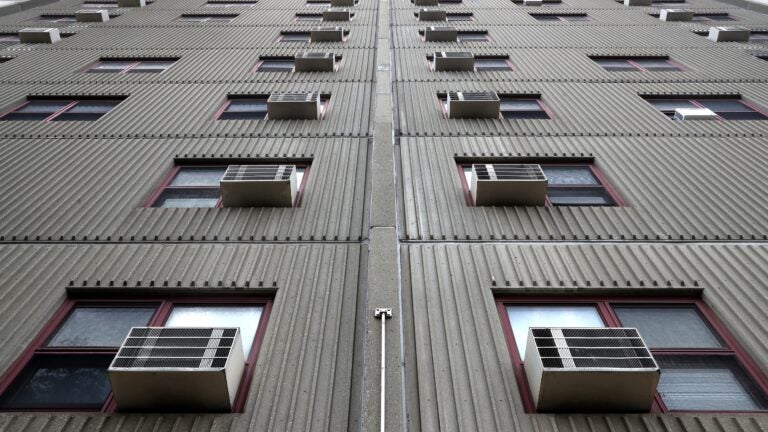Address Newsletter
Our weekly digest on buying, selling, and design, with expert advice and insider neighborhood knowledge.

By Mark Philben -- Globe Correspondent
As we struggle through more numerous and longer heat waves, questions from readers and my clients all seem to circle back to air conditioning.
We are incorporating mini-split heat pump/AC systems into more and more of our remodels. Most of the demand for these systems is for the air conditioning component. The heating component that is part of the same system more often than not is secondary.
Whether or not you have a whole house, mini-split, or window air conditioners, there are several things you can do to keep your home cooler and more comfortable as we deal with warmer and more humid summers. These tips also will help save energy.
There is nothing more appealing than a sun-bathed room, but in the summer the heat gain can overwhelm an AC system. Especially if the thermostat is anywhere near these rooms.
Room-darkening shades/curtains typically do best, especially if they have a white backing. Something common in Mediterranean Europe are exterior shutters that work even better because they prevent the warm sun from even hitting the windows. These can also be found in the Southwestern part of the US but are less common in the Northeast.
We have had many clients who choose to restore older, vintage windows or they simply don’t want to go through the expense of changing to newer, more thermally efficient windows. Modern windows have a low-E coating applied to them in the factory. Low-E (low emissivity) limits heat gain and energy transfer and will prevent much of the UV light from entering through the windows. Another plus for low-E is that it will retain heat inside during the colder months.
Luckily there is a solution for older windows. There are suppliers/installers who can apply a low-E film directly to the inside of the window. Professionally installed, you won’t even know there was a film applied. The film will not reduce any of the natural light coming through the glass. It is a great option for those who want or have to keep older or original windows in their home.
Many homes we see and work on have large expanses of glass on the rear of the house that open onto a patio or deck or just the back yard. A retractable awning can work well to prevent the sun from pouring heat through these glass doors or windows. They also allow you to use the space if it is raining, which can be nice in the summer months.
They are a relatively low-cost option that can gently keep the air moving throughout the house. Used in conjunction with closing shades and curtains to reduce solar gain, they can be surprisingly effective.
Something I have written in past articles is that when put in winter mode (clockwise rotation), they also help keep rooms more comfortable in colder months by moving the warm air trapped against the ceiling back into the room. Highly recommended.
Open windows at night, if possible, when the humidity levels are not sky high, and closing them along with the shades/curtains during the day can help quite a bit. (In the city, many people are not comfortable with that. They make window guards that allow windows to be open a set amount and no more.)
The cool night air can take the edge off while everyone is getting ready for work and school in the morning. This will reduce a lot of energy consumption at a time when the house will soon be empty for the day.
Putting an oven on or even multiple range burners can throw quite a bit of heat into a space.
An oven may be on for 40-45 minutes at least for a typical meal, not something you want to be doing in a heat wave. Even just using a smaller air fryer would help since those are far smaller and cook in a fraction of the time.
Make sure to use your bathroom and range-hood vents. You want to be expelling warm, moist air from the house anywhere you can. Bath fans should stay on for at least another 10 minutes after a shower is turned off.
Installing a timer switch for bath vents makes that much easier. The vents we put in nowadays are so quiet it would be easy to leave them on all day as you fly out the door on the way to work or school. A range hood should also be left on for 10-15 minutes after cooking, and it will dissipate smells and excess heat to the outside.
Used together, these tips can help you possibly defer the cost of installing an AC system or at the very least, make whatever system you have in your house use less energy.
Taking things to the next level, we recommend to many clients to have a professional energy audit done. This will inform you of all the areas in your home that will need more insulation, proper air sealing, or repairs of faulty equipment installs, to name a few. These entail a more significant investment that could be considered after trying the above cost-effective measures.
As always, consult with professionals!
Mark Philben is the project development manager at Charlie Allen Renovations in Cambridge. Send your questions to [email protected]. Questions are subject to editing.
Our weekly digest on buying, selling, and design, with expert advice and insider neighborhood knowledge.
Stay up to date with everything Boston. Receive the latest news and breaking updates, straight from our newsroom to your inbox.
Conversation
This discussion has ended. Please join elsewhere on Boston.com